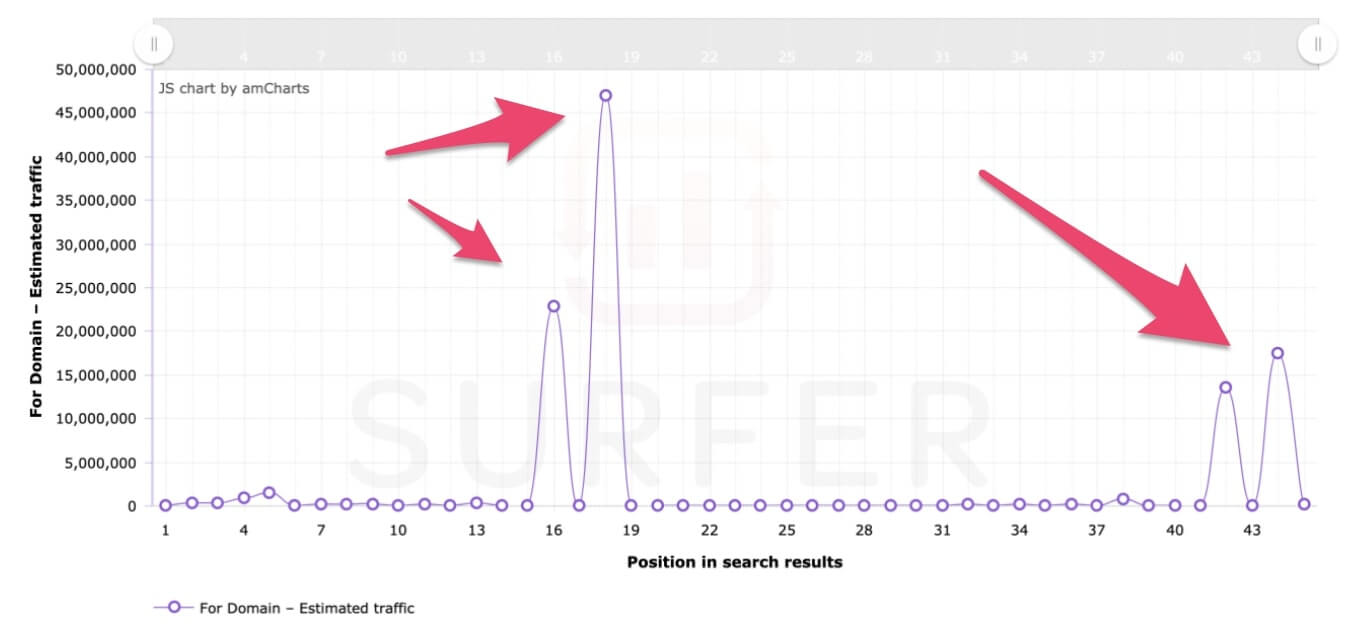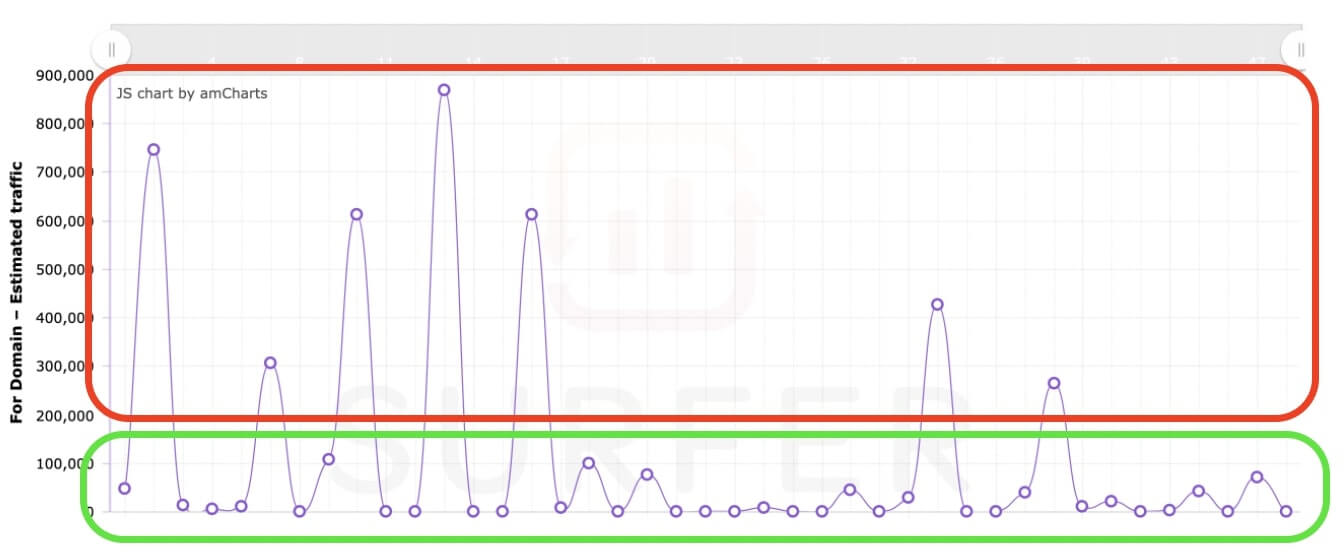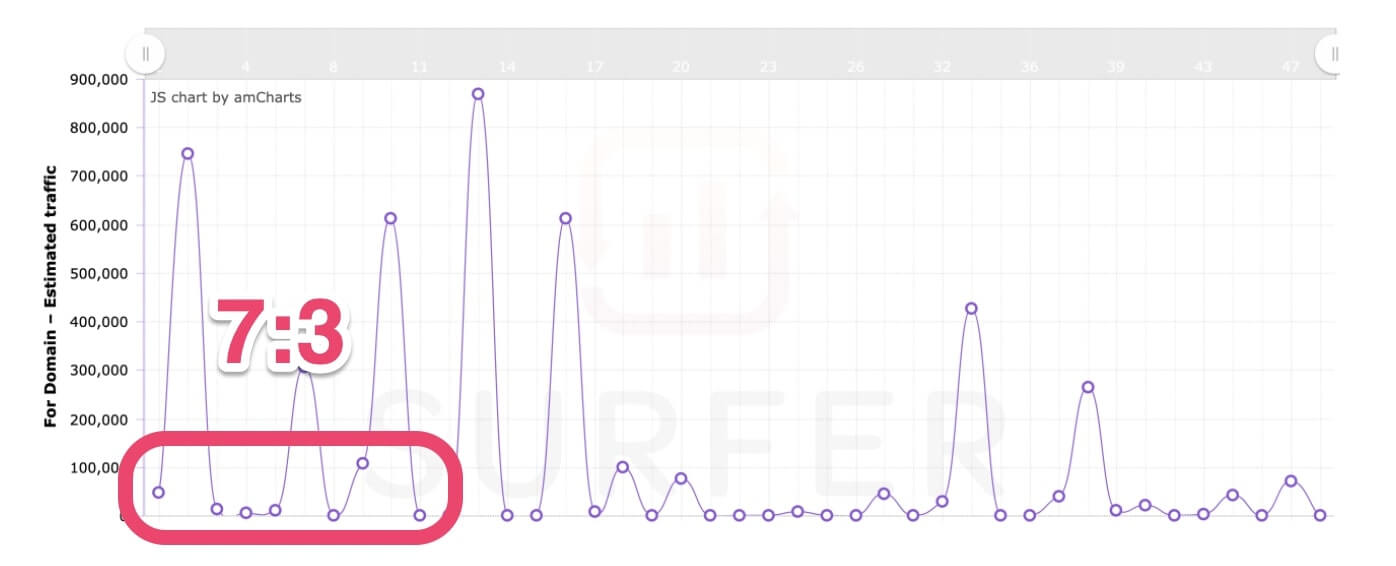Keyword Research
Cracking the Code: Expert Tips for Conquering High Keyword Difficulty in SEO
There are numerous ways to reach the point of targeting keywords for search engine optimization. One common approach is to sort the keywords by search volume and keyword difficulty metric, which many SEOs, including myself, find helpful. Assuming you already have a list of these keywords, let’s delve into the topic.
If an SEO specialist has done a good job, these keywords should have high search volume, drive visibility, generate traffic, and eventually lead to monetization of the website.
Unfortunately, in most cases, this doesn’t happen or takes longer than expected. There is usually a reason for this.
One crucial step that is often overlooked is evaluating the keyword difficulty metric based on more than just a single metric provided by various SEO tools.
I understand the convenience of seeing metrics like domain authority or keyword difficulty scores, but it’s important to take the time to analyze your target phrases. This can save you hours of frustration and money spent on content that doesn’t yield the desired results.
The best site architecture and perfect silo won’t be effective if you aim too high for your domain’s capabilities. In this article, you will learn how to set achievable goals and deal with keywords that are currently out of your reach.
Evaluating keyword difficulty score based on the first page of organic search results
Domains are considered “strong” due to their backlink profiles and overall visibility in search results. These strong domains with high authority pages can pose a challenge when competing for keywords with high keyword difficulty metrics.
Google tends to favor domains with backlinks and high rankings in numerous search engine results pages (SERPs). Even if the content is not well-optimized, Google may still rank it well. Conversely, small website owners who pour their hearts and souls into delivering valuable content may struggle to make it to the top ten.
Additionally, high authority pages’ brands can attract more clicks in the SERPs. People are often inclined to click on familiar names, such as Amazon or Business Insider, even if there are higher-ranking but lesser-known domains. This makes it challenging to compete with high-authority websites.
An effective way to identify these high authority pages in the SERPs is by checking their traffic compared to other ranking pages. Tools such as Surfer’s SERP Analyzer or the Keyword Surfer browser extension can provide this data for the top 10 results. If you notice a significant spike in traffic for a particular page, you have likely identified a high authority page. The more spikes there are, the higher the keyword difficulty.

The more high authority pages there are in the top ten, the fewer competitors you are likely to outrank. This makes it harder to take over the SERP.
There will always be one or two strong domains ranking for your target phrase. The problem arises when the majority or all of the ranking domains have a high number of referring domains.
How to compare your page with those in the SERP?
There’s no need to go into excessive detail; instead, focus on the order of magnitude and determine if you are on a similar level. For example, a page with tens of thousands of organic visitors will find it challenging to outrank one with millions of visitors.
SERPs often have results split into two categories: smaller, niche-relevant pages, and high authority sites.

A 5:5 ratio in the top ten (pages you can outrank vs. high authority pages) is a neutral point. If there are 6 or more high authority pages in the SERP, it’s best to avoid targeting keywords with such high keyword difficulty scores.
Pages you can outrank – a new metric for researching keyword difficulty
Use the above-mentioned ratio to prioritize keywords on your to-do list. There’s no point in starting with a term that has 9 strong competitors in the top 10 results, as it will be too difficult to outrank them.
Add a new column to your keyword research sheet that contains this information.

Tactics for when you’re strong enough to compete for difficult keywords
For search terms that you can tackle right away, the recipe is simple. Write optimized content using the SEO Content Editor and internally link the new article from relevant and already ranking posts. Check out our comprehensive guide on how to write with Surfer for more information.
However, what should you do when your page is weak and the keyword difficulty score is too high, even when compared to niche sites? This is where building credibility for the domain comes into play.
Building credibility for the domain to overcome high keyword difficulty
There are two ways to build credibility for your domain. The first is through a long-term strategy of consistently growing your content on less popular keywords, which will establish topical relevance for the entire domain. While this approach requires time and effort, it can be effective.
The second, faster approach is through link building. By creating high-quality content on your website and actively building backlinks, you can increase your domain’s credibility.
But the real magic happens when there is synergy between link building and creating high-quality page content.
Let’s start with the strategy of building quality backlinks.
Quality backlink building
Which backlink is stronger for the keyword “best protein powder” – one from Forbes or a smaller but relevant page that ranks well in the niche? According to Matt Diggity, the strongest backlink you can get for a “best protein powder” page is from the page that ranks #1 for that keyword. This is because Google has already deemed it the most relevant and authoritative URL in the world for that target keyword.
It’s often easier to write a guest post or obtain a link from a niche website rather than from Forbes. Writing a guest post for a top-ranking domain can be seen as “renting” the first spot, which is a valuable opportunity.
My go-to strategy for target keywords I can’t currently tackle
- Find a relevant website where you can potentially publish your content.
- Ensure that the website has a low authority to high authority pages ratio, as this works in your favor.
- Create well-optimized content that not only links to your website but also includes a call-to-action for whatever your page offers.
This strategy allows you to have your content in the top ten without relying solely on a strong domain. Additionally, you’ll have two results in the top ten – your main domain and the guest post itself. Another benefit is that no one else will be able to acquire that specific link.
Optimize pages that link to you
While you may not have control over the architecture and technical aspects of a guest post, you can still optimize the article itself. Don’t waste money on posting just for the sake of getting a backlink; you want your guest post to be read. Ensure that the content provides value to the reader and optimize it using data from other well-ranking pages. Review the website where you plan to publish and find related articles that could potentially link to your guest post. This strengthens the article and speeds up indexing. Consider throwing some links, even if they are no-follow, at the article to further enhance its visibility.
Outreach link building
Manual outreach often fails because of boring pitches that are immediately disregarded. Instead, try a unique approach to increase your chances of success. Offer something valuable in your pitch that positions you as an authority in the industry. For example, propose a topic based on competitors’ research and support it with a case study from previous publications. Show that you can drive additional traffic and back up your claims with data. This method has been shown to increase response rates and conversions in outreach efforts.
Paid links
If you’re short on time and want immediate results, you can consider purchasing links. The pricing and availability of guest posts vary based on the competitiveness of the targeted keywords. For low competition keywords, you can explore options starting from DR 30+ guest posts, while medium competition keywords may require DR 45+ or DR 60+ links. Keep in mind that acquiring high-quality links from sites like Forbes or the New York Times can be quite expensive. Additionally, currently, there is no option to internally link guest posts using specific anchor text, but this may change in the future.
Internal link building is crucial for tackling high keyword difficulty search terms
While growing your content is important for building topical relevance, it’s equally crucial to strategically plan your internal linking. Don’t randomly throw articles without considering their relevancy. The most effective internal links come from related topics. Slawek Czajkowski provides an example of what can happen when you deviate from your niche. He mentions a digital marketing agency that created a large amount of content about television ads, which led to their pages being excluded from the SERPs. Stay within your niche unless you have the authority of Forbes or Medium. Plan a simple silo structure for your money page and ensure consistent anchor text structure when linking internally. These strategies will bring you closer to targeting highly competitive keywords with challenging difficulty scores.
Finding subtopics in Google
You can start by searching your main keyword in Google and examining the “People Also Ask” questions. This can yield great topics for supportive articles that are easier to rank for. Additionally, you can use the free Chrome extension, Keyword Surfer, for keyword research. It provides search volume, suggests similar keywords for creating subtopics, and offers an overview of the ranking pages’ strength.
Keyword research in Surfer
Surfer offers a more automated approach for generating subtopic ideas. By analyzing currently ranking pages, you can quickly extract clusters of keywords. Our team is actively working on this feature, so stay tuned for updates.
Key takeaways from the keyword difficulty guide
When it comes to building credibility and links, the synergy between on-page and off-page factors is critical. Write for domains that have the capability to rank and link back to your site. This goes beyond acquiring quality backlinks; it involves taking over a significant portion of the SERP with your content and messaging. In the long term, you will have multiple pages ranking in the top ten.
Before attempting to rank for high keyword difficulty search phrases:
- Evaluate the keyword difficulty score based on pages you can outrank ratio.
- Focus on building backlinks on pages that have the potential to rank and remain relevant over time.
- Consistently grow your topical relevance by targeting smaller, low keyword difficulty phrases initially.
By following these strategies, you can build up your domain’s authority and become a niche authority over time. Start implementing these tactics today and conquer those high keyword difficulty phrases!
If you want to learn more, check out these related articles:
- Keyword Research Ultimate Guide: Step-by-Step Strategies for More Traffic
- What Are Keywords? How Do You Use Them for SEO?
- The Great Search Intent Analysis of 2020: Top SEOs on User Intent + Big Data Case Study on Intent Changes

